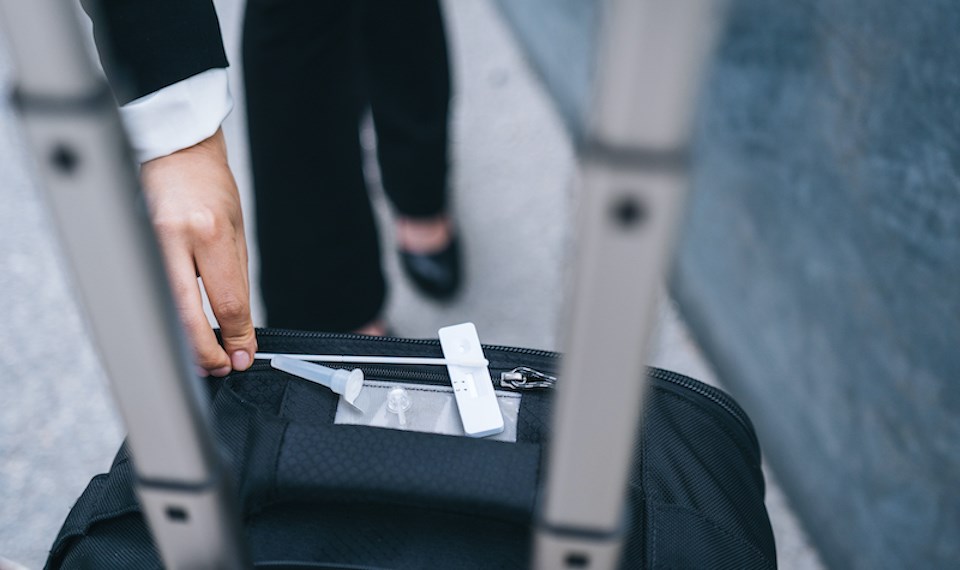Canada will drop its mandatory pre-arrival testing requirement for travellers on April 1 — but experts worry that random testing on arrival may create issues for some individuals.
The federal government is dropping the pre-arrival testing requirement on April 1 but travellers are still subject to random testing on arrival at the airport.
Fully vaccinated travellers who test positive upon arrival must isolate for 10 days after the start of symptoms or after the specimen collection date validated by the test provider. They do not have to quarantine while awaiting results.
B.C. only requires five days of isolation after a positive result but the federal requirement overrules the provincial one.
But it is possible to test positive for the virus even if an individual currently isn't sick.
Proving you had COVID-19
Will McAleer, the Executive Director of the Travel Health Insurance Association of Canada (THIA), tells Vancouver Is Awesome in a phone interview that people who may have contracted COVID-19 within 90 to 180 days could still test positive for the virus.
"How do you prove that you have previously contracted COVID-19 and recovered?" he asks, noting that many provinces advised individuals with mild symptoms to treat themselves at home and not get tested when clinics were overwhelmed with people.
Taking direction from the provincial health officer, many British Columbians did not get tested for coronavirus and do not have evidence of a prior infection.
Individuals who recover from an infection can "continue to have detectable SARS-CoV-2 RNA in upper respiratory specimens for up to [three] months after illness onset," according to the Centers for Disease Control and Prevention (CDC).
The health agency notes, however, that concentrations of the virus will be "considerably lower than during illness."
Keep a record of a prior infection with you while you travel
McAleer adds that the Canada Border Services Agency is particularly clear about what kind of evidence it requires for proof of a prior COVID-19 infection. In other words, the rapid test you picked up from a local drugstore won't cut it — even if you told your health care provider about it.
"I know individuals who have come back. They weren't able to access a PCR test before they left," he notes. "They didn't have positive molecular testing on a piece of paper or in a digital version from [a] testing company."
If you did test positive for COVID-19 on a professionally administered PCR test, you should keep a record of it with you while you travel.
With the April 1 deadline approaching, the travel health insurance expert wonders if the government will have some comments about the testing requirement.
"Does that mean that they're going to increase the randomized PCR testing? Are they going to change the randomized test to rapid antigen as opposed to PCR?"
Unfortunately, no insurance provider currently covers quarantine requirements when people return home.
Public Health Agency of Canada spokesperson Anne Génier tells Vancouver is Awesome in an email that "a residual positive test result is rare but it is a possibility" and that "people who have recovered from COVID-19 can test positive for up to 180 days."
Find out everything you need to consider as a B.C. resident booking travel in 2022, including important insurance considerations.




